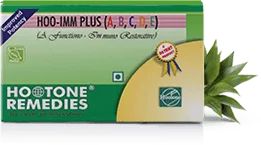Psoriasis is a chronic autoimmune condition that causes the rapid build-up of skin cells up on each other. This build-up of cells causes scaling on the skin’s surface.Inflammation and redness around the scales is fairly common. Typical psoriatic scales are whitish-silver and develop in thick, red patches. Sometimes, these patches will crack and bleed.Psoriasis is the result of a sped-up skin production process. Typically, skin cells grow deep in the skin and slowly rise to the surface. Eventually, they fall off. The typical life cycle of a skin cell is one month. It is a chronic non-infectious inflammatory skin disorder, characterized by well-defined erythematous plaques bearing large adherent silvery scales. It can start at any age but is rare under 10 years, and appears most often between 15 and 40 years. Its course is unpredictable but is usually chronic.
The precise cause of psoriasis is still unknown. However, there is often a genetic predisposition, and sometimes an obvious environmental triggers or stimulators.
Psoriatic fathers are more likely to pass on the disease to their children than the psoriatic mothers. A child with one affected parent has a chance of developing in disease in 16% cases, and if both parents are affected than this rises to 50% in total cases.
Symptoms-Psoriasis symptoms differ from person to person and depend on the type of psoriasis. Areas of psoriasis can be as small as a few flakes on the scalp or elbow, or cover the majority of the body.
The most common symptoms of psoriasis include: red, raised, inflamed patches of skin
red, raised, inflamed patches of skin whitish-silver scales or plaques on the red patches
whitish-silver scales or plaques on the red patches dry skin that may crack and bleed
dry skin that may crack and bleed soreness around patches
soreness around patches itching and burning sensations around patches
itching and burning sensations around patches thick, pitted nails
thick, pitted nails painful, swollen joints
painful, swollen jointsNot every person will experience all of these symptoms. Some people will experience entirely different symptoms if they have a less common type of psoriasis.Most people with psoriasis go through “cycles” of symptoms. The condition may cause severe symptoms for a few days or weeks, and then the symptoms may clear up and be almost unnoticeable. Then, in a few weeks or if made worse by a common psoriasis trigger, the condition may flare up again. Sometimes, symptoms of psoriasis disappear completely.
When you have no active signs of the condition, you may be in “remission.” That doesn’t mean psoriasis won’t come back, but for now you are symptom-free, but not disease free.
Types of PsoriasisThe symptoms of psoriasis also vary based on the type. There are five official types of psoriasis:
 Plaque
Plaque Guttate
Guttate Inverse
Inverse Pustular
Pustular Erythrodermic
ErythrodermicPsoriasis can also cause symptoms of mental stress, anxiety, and low self-esteem. Depression is also common with people who have psoriasis.
TreatmentThe need for this depends both on the patients own perception of his and her disability, and on the doctor’s objective assessment of how severe the skin disease is.
Although there is no one cure for any form of psoriasis, remission and significant healing is possible. Your doctor will work with you to create a treatment plan that helps manage your condition. You can also take steps at home to manage psoriasis.
These can include: practicing relaxation techniques to reduce stress
practicing relaxation techniques to reduce stress moisturizing dry skin
moisturizing dry skin quitting smoking
quitting smoking avoiding products that irritate your skin
avoiding products that irritate your skin wearing comfortable clothing that doesn’t rub the psoriasis scale
wearing comfortable clothing that doesn’t rub the psoriasis scale eating a healthy diet
eating a healthy dietDoctors may slowly build up to the most effective treatment plan for your psoriasis symptoms. Most start with a topical or light therapy treatment and only progress to systemic medications if the first line of treatment is unsuccessful. The doctor as well as the patient should keep the disease in perspective, and treatment must never be allowed to be more troublesome than the disease itself. The disease is not contagious.
Unani Aspect of the diseaseIn ancient Unani literature, the main or exact cause of the disease is not known but the majority of the causative conditions are syphilis, gout or arthritis. There are two types of psoriasis mentioned in the books that are- newly developed or the one which reoccurred after the first attack.
The description of the symptoms of psoriasis in unani system of medicine are same as mentioned earlier, the skin becomes hard in texture and scales start to appear with inflammation around the patches and itching.
Unani Treatment Plan A
Plan A Morning-Musaffi-e-Ajeeb- 15mL with lukewarm water.
Morning-Musaffi-e-Ajeeb- 15mL with lukewarm water. Night- Majoon-e-Ushbah (10grms) with Arq-e-Shahatra (100mL)
Night- Majoon-e-Ushbah (10grms) with Arq-e-Shahatra (100mL) Plan B
Plan B Habbe Musaffi Khoon – 1 tab
Habbe Musaffi Khoon – 1 tab Musaffi Ajeeb- 15mL
Musaffi Ajeeb- 15mL Any tropical application for preventing dry skin.
Any tropical application for preventing dry skin.For further enquiries and treatment related queries, contact
A renowned and world-famous Unani practitioner with an experience of more than 30 years.
The HOO-IMM PLUS (A, B, C, D, E) is an absolutely new, novel, pioneering and revolutionary concept from Unani Herbal to medical science. It is a very safe, efficacious Indian medicine for the relief of AIDS according to the degree & stage of affliction.
View More